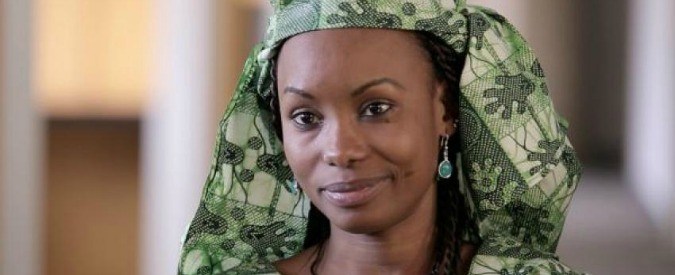
Climate Amazons: Hindou Oumarou Ibrahim, a life dedicated to her people
With respect to matters relating to climate change women should be one of the first points of reference in every discussion on account of their central role in society and their greater vulnerability. On the contrary, in the international debate the representation of women is not proportionate to the risks women are exposed in the event of environmental disasters. In the context of the forthcoming COP22 conference in Marrakech it will be important to present the work of all those women, engaged in diplomatic fields or operating as local activists, who are gaining distinction in the field of climate justice.
Hindou Oumarou Ibrahim is 32 years old and a member of the Mbororo community, a nomadic pastoral community of about 250,000 people living in the Sahel region of the Central African state of Chad. She is the coordinator of the Association of Women and Indigenous Peoples of Chad (AFPAT) and was chosen as a representative of civil society at the opening ceremony for the signing of the Paris Agreement, the first global treaty on the fight against climate change, signed in 2015 at the COP-21 Conference. In her speech addressed to world leaders present at the event she recalled the effect this phenomenon has on indigenous communities such as the one she herself belongs to. For their subsistence and livelihood the Mbororo people in fact depend on the ecosystem of the Lake Chad water basin, which is now disappearing, and for this community the situation creates the prospect of a future as climate migrants.
To a large extent Ibrahim’s past experience involves a significant focus on the rights of indigenous peoples and the protection of the environment. She has dedicated her life to assisting and protecting the Mbororo people and the land they live in, and over the years this has allowed her to establish herself as a leading expert in climate mitigation and adaptation. This commitment also involves a significant focus on the importance of the traditional knowledge of indigenous peoples. The deep bond these communities have with the land they live in is a resource that can not be excluded from scientific research on environmental protection.
“Traditional knowledge and climate science are both of paramount importance in efforts aimed at generating resilience on the part of rural communities with respect to climate change.” On this premise in 2012 Ibrahim collaborated in the development of a participatory three-dimensional mapping project for the management of environmental resources in Chad. The term ‘participatory’ is used in the sense that the consultation process involved indigenous peoples in the region, integrating for the first time their traditional knowledge in the environmental adaptation program initiated by the government. The project was also an opportunity to involve the women of these communities, highlighting their role in the protection of environmental resources. With their responsibility for supplying food to their families, women hold much of the knowledge on how to adapt in emergency situations. For example, such an awareness allows them to find water during droughts and they know how to preserve it. Ibrahim pointed out that, “this project helps to highlight women’s voices and knowledge on climate adaptation and mitigation. It also helps to solve conflict connected to resource use as tensions increase when resources disappear.” There is thus a great need to understand how local communities organize themselves and use the knowledge they have accumulated over generations to face the consequences of climate change.
Ibrahim stressed that despite the excellent results that have been achieved this program does not guarantee the survival of the Mbororo people and, above all, does not protect them from deforestation and expropriation of the territory in which they live. Unfortunately, indigenous peoples continue to face serious discrimination. Basic rights such as self-determination, the ownership of land and access to resources are crushed by a system where the prerogatives of corporations take precedence over those of the people. Hibrahim made the AFPAT join forces with the Pan African Climate Justice Alliance for the precise purpose of combating this malpractice and giving a voice to her people. If we want the Mbororo and other indigenous peoples to be respected, the rights enshrined in the UN Declaration on the Rights of Indigenous Peoples must be fully recognised and Climate Justice indicates the route to be followed in order for this to happen. The different degrees of responsibility of nations in raising the global temperature and in the exploitation of resources actually place the indigenous peoples in a state of being creditors with respect to a system from which they are in fact excluded and by which they are also damaged in relation to the basic forms of sustenance. Preserving the balance of the ecosystem is an inherent need for any tribal culture. Also in the tropical forests some communities use various natural materials, starting with timber for the construction of their settlements, but without significantly influencing the environment around them. To respect these people, recognising the role of their culture in the environmental protection of the planet is a necessary and unavoidable step to build a new sustainable way of life for everyone.
Chiara Soletti
Published for Italian Climate Network on Il Fatto Quotidiano
